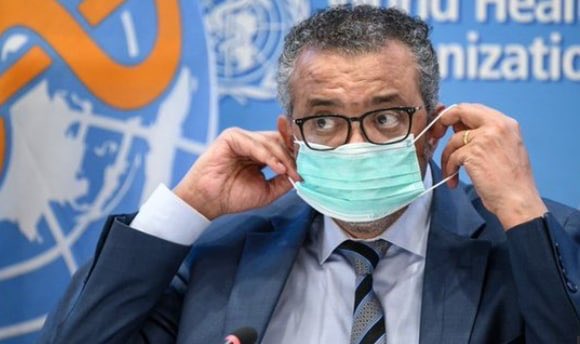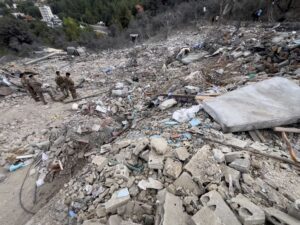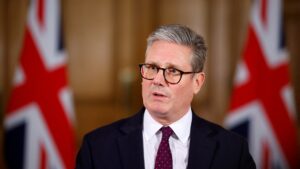
The head of the World Health Organisaton (WHO) has urged governments across the world to deploy measures like masking and improved ventilation amid unacceptably high numbers of deaths.
While many governments of wealthier countries have all but abandoned coronavirus restrictions following successful vaccine rollouts, the organisation’s director-general emphasised that the pandemic is “nowhere near over.”
Dr Tedros Adhanom Ghebreyesus said sub-variants of Omicron continue to drive new waves of cases, hospitalisations and deaths around the world.
Amid increasing COVID transmission and rising hospitalisations, Dr Tedros urged governments to “deploy tried and tested measures like masking, improved ventilation and test and treat protocols”.
“I am concerned that cases of COVID-19 continue to rise – putting further pressure on stretched health systems and health workers,” he said.
“I am also concerned about the increasing trend of deaths.”
Among the variants and subvariants being tracked by the WHO is BA.2.75 – nicknamed the centaurus – which was first discovered in India in May.
Scientists say the variant may be able to spread rapidly and get around immunity from vaccines and previous infection.
Dr Ghebreyesus outlined several “interlinked challenges” now facing the global response to coronavirus, including the Omicron sub-variants and reduced testing and sequencing.
He added: “There is a major disconnect in COVID-19 risk perception between scientific communities, political leaders and the general public.
This is a dual challenge of communicating risk and building community trust in health tools and public health social measures like masking, distancing and ventilation.”
The spectre of some restrictions being brought back in the UK was raised on Tuesday if an increase in cases affects the NHS backlog.
Dr Ghebreyesus continued: “New waves of the virus demonstrate again that the COVID-19 is nowhere near over.
“As the virus pushes at us, we must push back. We’re in a much better position than at the beginning of the pandemic.
“Of course, there’s been a lot of progress. We have safe and effective tools that prevent infections, hospitalisations and deaths.
“However, we should not take them for granted.”
He urged governments to regularly review and adjust their COVID-19 response plans based on changing situations.







